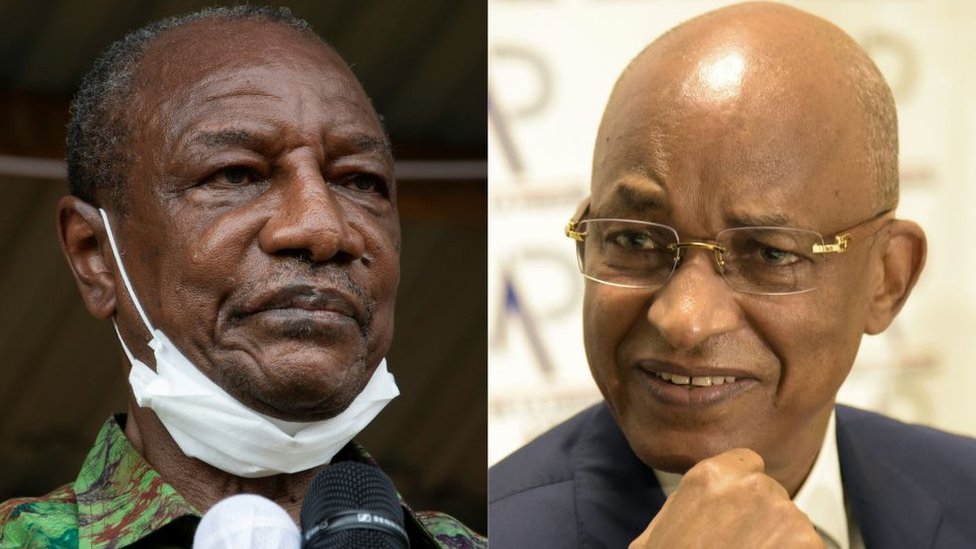
CONAKRY, Oct 19 (NNN-AGENCIES) — Guineans cast ballots for a president on Sunday, with the 82-year-old incumbent Alpha Condé facing his longtime rival Cellou Dalein Diallo for a third time.
Guinea‘s election — the first in a string across West Africa — followed a tense campaign marked by insults traded between President Alpha Condé and his leading rival. .
Some 5.4 million people were registered to vote, and initial results are expected to be announced in several days.
Ten other candidates besides Condé and Diallo were contesting the poll. A second round run-off vote is scheduled for Nov 24, if needed.
Polls closed at 6pm local time after a mostly calm day of voting.
Security Minister Albert Damantang Camara said there had been “no major incidents” on Sunday.
Much of the tension in Guinea relates to a new constitution Condé pushed through in March, in defiance of mass protests, arguing that it would modernise the country.
The move controversially allowed him to bypass a two-term limit for presidential terms.
After decades as an opposition activist, Condé became Guinea’s first democratically-elected president in 2010 and won again in 2015 but rights groups now accuse him of veering towards authoritarianism.
Diallo, 68, was formerly a prime minister under authoritarian leader Lansana Conté.
Condé and Diallo have faced off twice before in tense polls in 2010 and 2015, but this year’s were especially fraught.
The old rivals traded bitter insults on the campaign trail. Diallo frequently raised the issue of Condé’s age and encouraged him to “retire with dignity”.
But the octogenarian president brushed off the jibes, and often reminded feverish crowds of Diallo’s tenure under the autocrat Conté.
Condé argues that he has modernised the nation of 13 million people, and this year adopted tactics from previous campaigns, telling voters he would make Guinea “Africa’s second (economic) power after Nigeria”.
But despite rich deposits of bauxite, gold and diamonds, and abundant fresh-water supplies, Guinea remains a poor country.
Sunday’s vote marks the start of a busy electoral cycle across West Africa, with votes also due in Ivory Coast, Burkina Faso, Ghana and Niger.
In Ivory Coast, President Alassane Ouattara is running for a third term on Oct 31 after revising the constitution despite fierce opposition. — NNN-AGENCIES)
